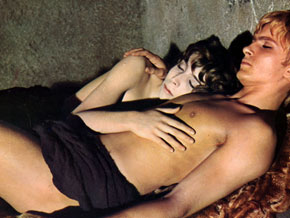Taking place next week, amidst the events that revolve around the 15th LGBT Pride Parade in São Paulo, the launch of the book "Cine Arco-Íris – 100 Anos de Cinema LGBT nas Telas Brasileiras".
Written by Stevan Lekitsch – journalist, critic, involved with LGBT media since the 90s -, the work analyzes more than 270 films with LGBT themes shown in Brazil, in national cinemas, since the beginning of time.
The title seeks a reference to the gay issue, in the symbolism of the rainbow – not to be confused with a possible biography of a famous gay sex movie from Rio.
The author begins his research in the 30s, citing titles such as "Mata Hari" (31, with Greta Garbo) and the Brazilian "Messalina" (30), and soon moves on to the 40s, with the obligatory "Festim Diabólico" ( 48, by Alfred Hitchcock).
Throughout the work, Stevan presents reviews and comments on films that in some way identify with the gay issue. Even unexpected titles appear, such as "Conta Comigo" (86). The author himself reveals that he hesitated before including this masterpiece in the book. After all, according to him, the homoerotic issue is quite subtle – and, in fact, an issue to be discussed.
Naturally, the most popular films on the subject also appear, such as "The Birdcage" (French version of 78 and American version of 96) and "The Priest" (94), as well as works by Pedro Almodóvar and classics such as "Satyricom" (70, photo), by Fellini. Interestingly, some films directly linked to the gay universe were left out, such as "Priscilla" (94).
From now on, however, the book is mandatory. The publication is from Edições GLS and the launch takes place at Livraria Cultura, with the presence of the author.
Service:
"Cine Arco-Íris – 100 Years of LGBT Cinema on Brazilian Screens"
Launch Wednesday 22/06 – from 19pm to 21:30pm
Livraria Cultura – Conjunto Nacional
Avenida Paulista, 2073
Free Entry



